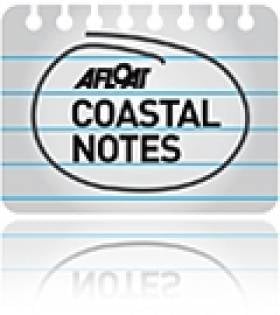Displaying items by tag: opposition
Oil Strike Success Off Cork Coast Could Be Worth Billions
#COASTAL NOTES - Providence Resources has struck big off the south coast of Cork with an oil flow that could be worth billions of euro to the beleaguered Irish economy.
According to the Guardian, the Dublin-based company announced yesterday that oil had started to flow successfully from its Barryroe structure in the north Celtic Sea at nearly twice the rate previously projected.
Providence Resources CEO Tony O'Reilly Jr said the discovery was a "seminal day for Ireland, especially in the runup to St Patrick's Day."
Last month the firm had confirmed the presence of light oil with its first appraisal well at the site, a situation described by its technical director as "extremely encouraging".
Now that a steady flow has been achieved, future extraction from the oil field - comparable to a medium-to-large North Sea field - can surely proceed, which now puts pressure on the Government to grand permission for further exploration around the Irish coast.
As previously reported on Afloat.ie, plans by Providence Rescources to prospect for oil on the east coast off Dalkey Island have been met with fierce opposition by mainland residents and environmental groups.
The Guardian has much more on the story HERE.
DCC Rejects Clontarf Flood Defence Plan
#DUBLIN BAY NEWS - Dublin City Councillors have unanimously rejected controversial plans for flood defences in Clontarf.
As previously reported on Afloat.ie, councillors were set to vote last night on whether to give the green light to the scheme, which has faced strong opposition from local residents and business owners.
The flood barrier would have involved the construction of mounds or walls up to and above 7ft high along the Clontarf promenade.
However, following a vote last night, a redesigned proposal was rejected by the council, with officials admitting to The Irish Times that the public consultation process "didn't work".
Labour councillor Jane Horgan Jones said that it was now up to council officials and the local community to develop an acceptable plan to protect Clontarf from flooding in the future.
"However this is done, it must not be at the cost of destroying a beautiful, free and natural amenity that has been used by generations of Dubliners, from within and outside Clontarf, for many years,” she said.
The Irish Times has more on the story HERE.
DCC Votes Tonight on Clontarf Flood Defences
#DUBLIN BAY NEWS - BreakingNews.ie reports that Dublin City Councillors will vote tonight on whether to give the green light to the controversial flood defence plan for Clontarf.
Thousands of people have held protests in the north Dublin suburb over recent weeks to show their opposition to the plan, which involves mounds or walls up to and above 7ft high, arguing that the council did not allow for any public consultation.
As previously reported on Afloat.ie, the Irish Sailing Association has urged DCC to defer the vote, which has also faced strong opposition from local business owners.


























































